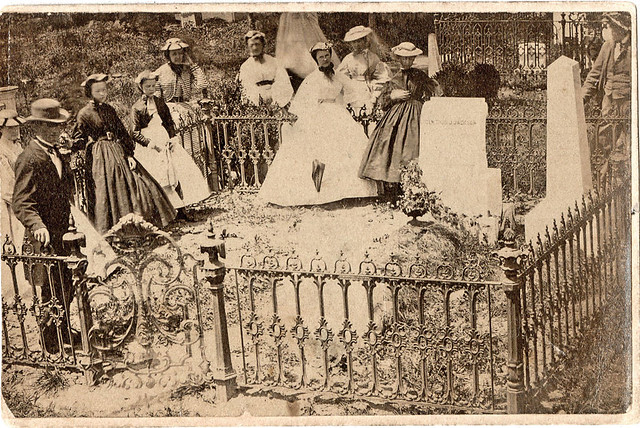
On May 10, 1863, “Stonewall” Jackson died after being accidentally shot at the battle of Chancellorsville. Known as one of the most gifted tactical commanders in US History, much has been published about his war record. But did you know that the anniversary of his death became the date selected by many towns in Virginia for honoring fallen soldiers and the impetus for today’s Memorial Day? While over two dozen places have been named in connection with the origin of Memorial Day, Virginia attributes the start of Decoration Day to the Ladies’ Memorial Associations.
The first Ladies’ Memorial Association was organized in Winchester VA. When Mary Williams, a Winchester resident, heard about a local farmer who had plowed up the bodies of Confederate soldiers while preparing his field, she was horrified by the lack of proper burials for these men. She shared the story with her sister-in-law, Evelyn Boyd, and the two called together the town’s women to take action. At the meeting, the women agreed to organize a memorial society that would gather the dead soldiers within a fifteen mile radius and inter them into a single graveyard. They planned to decorate these graves annually to honor these fallen soldiers.
Women all over state followed suit. Once the task of collecting soldiers’ remains and interring them was complete, the women of these associations organized a day of remembrance. Many towns and cities in Virginia chose May 10, the anniversary of Stonewall Jackson’s death as their Decoration Day. Hundreds and even thousands of citizens gathered at the town’s center, and marched in procession to the cemetery where the women and children decorated the graves with flowers and evergreens.
Coincidentally, in researching my new novel, I stumbled across a story involving Professor Thomas Jackson before his attribution to a “Stonewall”. At VMI, he had quite a different nick-name: “Tom Fool” Jackson. Not popular among his students, Jackson was often the brunt of pranks and practical jokes. Interestingly, while in Lexington, Jackson taught Sunday School classes to slaves, a violation of Virginia law. In my research on his life before the war, I have been intrigued by this quiet, quirky man. Follow the links HERE and HERE to learn more.


